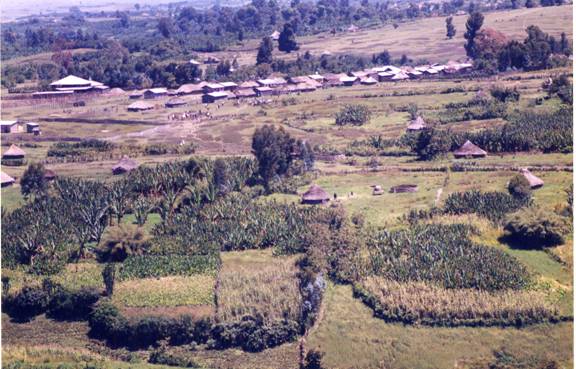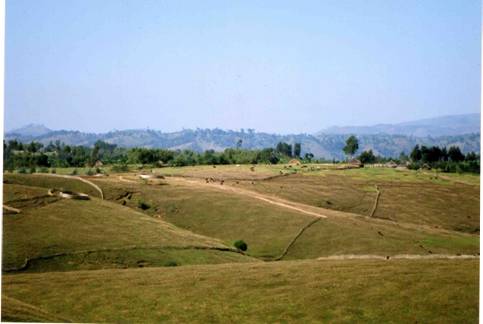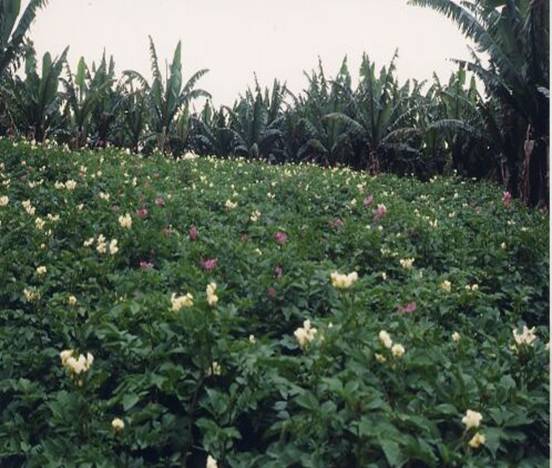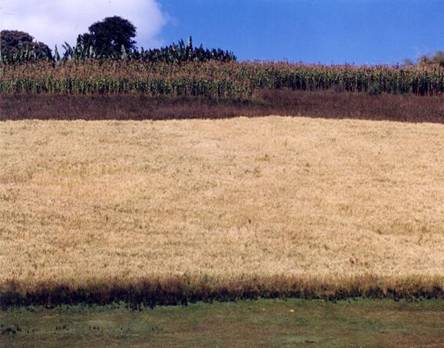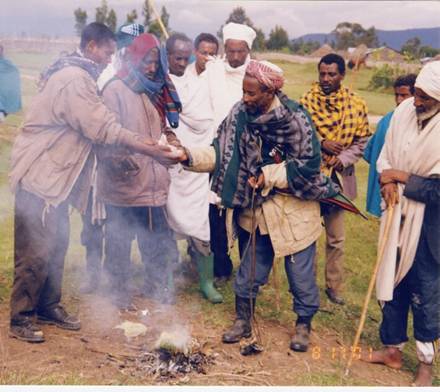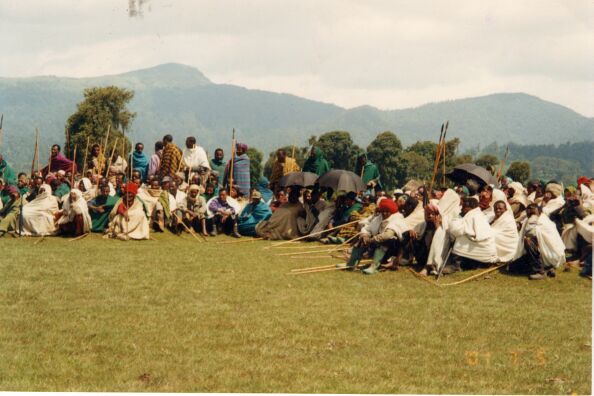|
研究者紹介
|
||
Mamo HeboAddis Ababa University Brief Biographical DataMamo Hebo is a Japan Society for the Promotion of Science’s Postdoctoral Research Fellow at Kyoto University. He obtained his PhD (2004) in Area Studies from the Graduate School of Asian and African Area Studies, Kyoto University, and his BA with distinction (1995) in Sociology and Social Administration from Addis Ababa University. He served as a Graduate Assistant and latter on as an Assistant Lecturer (October 1995-March 1998) in the Department of Sociology and Social Anthropology, Addis Ababa University. Mamo has been engaged in extensive anthropological fieldworks in southern Ethiopia since 1999, focusing on land tenure, land disputes and settings for disputes settlement among the Arsii Oromo. Currently, he is developing a research proposal on inter-ethnic conflict and solidarity with a focus on Arsii Oromo and Sidama interactions. Mamo’s overall research interests include: human ecology of natural resources ownership and management, conflicts on resources ownership/use, conflict resolution with a focus on non-formal peacemaking mechanisms, inter-ethnic conflicts and solidarity, and rural livelihood strategies. In addition to his native afaan Oromo, Mamo speaks, reads, and writes English, Amharic and Japanese languages. Publications1. Mamo Hebo. Land, Local Custom and State Polices: Land Tenure, Land Disputes, and Disputes Settlement among the Arsii Oromo of Southern Ethiopia, p xiv+186, Shoukadou Ltd. 2006. 2. Mamo Hebo. ‘Land Disputes Settlement in Plural Institutional Settings: A Case of Arsii Oromo, Southern Ethiopia’. In Environment, Livelihoods and Local Praxis in Asia and Africa, eds. Shigeta, M. & Y. Gebre. African Study Monograph No. 29:pp125-135, 2005. 3. Mamo Hebo. ‘Land Rights in Dispute: A Diachronic Overview of Land Disputes among the Arsii Oromo Peasants of Kokossa District, Southern Ethiopia.’ A Paper Presented at the 15th International Conference of Ethiopian Studies, Hamburg, Germany, 2003. (In Press). 4. Mamo Hebo. ‘A Note on the Interaction between the Formal and Informal Disputes Settlement Settings among the Arsii Oromo, Southern Ethiopia’. Asian and African Area Studies, 3: pp262-271, December, 2003. 5. Mamo Hebo. A Book Review for “Remapping Ethiopia: Socialism and After”. James, W. et al eds. Nilo-Ethiopian Studies, 8-9: pp91-94, 2003. Other academic papers1.Land, Local Custom and State ‘Laws’: A study of land tenure systems and land disputes settlements among the Arsii Oromo, Southern Ethiopia. A PhD dissertation submitted to the Graduate School of Asian and African Area Studies, Kyoto University, 2004. 2.Changes of Land Holding and Land Use among the Arsii Oromo, Southern Ethiopia. A pre-doctoral thesis submitted to the Graduate School of Asian and African Area Studies, Kyoto University, 2001. 3.Indigenous Marriage and the Family Organization among the Arsii Oromo of Kokossa District, Northern Bale. A BA thesis submitted to the Department of Sociology and Social Administration, Addis Ababa University , 1995. Conference presentations1.Adopted Religions, Indigenous Beliefs & Identity Issues among the Oromo: Searching for a middle ground in changing socio-political environments. Presented at the 15th Annual Conference of Japan Association for Nilo-Ethiopian Studies, Nanzan University, April 2006. 2.Arsii Oromo-Sidama Relations: An attempt to understand their past conflicts and present processes of integration. Presented at the 14th Annual Conference of Japan Association for Nilo-Ethiopian Studies, Chikuma City, April 2005. 3.Problems and Prospects of Education in Oromia Regional State: A Case of Highland Arsii Oromo Areas, Southern Ethiopia. Presented at the 42nd Annual Conference of Japan Association for African Studies, Tokyo University of Foreign Studies, May 2005. 4.Women’s Land Rights in Arsii Oromo Customary Settings. Presented at the 12th Annual Conference of Japan Association for Nilo-Ethiopian Studies, Kochi, April 2003. 5.Land Rights in Dispute: A Diachronic Overview of Land Disputes Among the Arsii Oromo Peasants, Southern Ethiopia. Presented at the 15th International Conference of Ethiopian Studies, Hamburg University, 2003. 6.Land Disputes Settlements in Plural Institutional Settings: A Case of Arsii Oromo, Southern Ethiopia.’ Presented at the COE International Workshop on Integrated Area Studies, ‘Environment, Livelihoods and Local Praxis in Asia and Africa’, Addis Ababa University, 2003. 7.More Production but Less Benefit: Peasants’ View of Agricultural Extension in Kokossa District, Southern Ethiopia. Presented at the 11th Annual Conference of Japan Association for Nilo-Ethiopian Studies, Iwate, April 2002. 8.Diachronic Analysis of Factors Accounting for Tree Cutting in Kokossa District of Oromia Regional State. Presented at the Annual Conference of Japan Association for African Studies, Nagoya University, April 2001. Membership in academic associationsJapan Association for Nilo-Ethiopian Studies Japan Association for African Studies Some photos from the field
Photo1.Bokore market-village is the most economically diversified Peasants’ Association (PA) in Kokossa district where livestock, enset and cereal crops compete for land and labor. The bi-weekly market held at Bokore also attracts people from most part of the district and from such neighboring districts as Dodoalla (in Bale zone) and Kofalle in Arsii Zone as well.
Photo2.Fenced land (right) like this one in Dayyuu PA near Kokossa town dominates the landscape of the district. Fencing is a strategy of ascertaining ownership overland. Individual land users consider fenced land as their own property while from an official point of view it is considered as a public property. This situation has given rise to an overlapping land ownership in this district.
Photo3.
Photo4. Photo 3-4: In Kokossa district, livelihood strategies have been changing because of both internal dynamics and external influences. The district, a traditionally livestock-enset area, has increasingly been integrating other crops into its livelihood strategies. Enset and potatoes (photo3), and enset, maize and wheat in a descending order (photo4) indicate the diversification, albeit with wide-ranging implications, of production practices in the area. Also note an intentionally enclosed strip of grazing land between maize and wheat fields (photo4), which is a way of individualizing lands by employing farm fields as barriers.
Photo5.
Photo6. Photo 5-6: Most of the problems that arise from human relations are dealt with in the framework of Oromo customs and at informal settings. The above scenes of customary disputes settlement settings at Bokore PA of Kokossa district reveal some instances of these settings. The photos above show, a wayyuu (a spiritual dispute settler) performing a ritual cursing a nonconformist (photo5), and a yaa’a ambaa (an assembly of multitude) investigating a dispute (photo6). |
||

